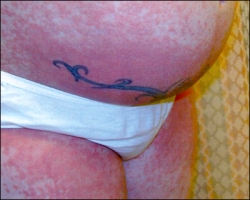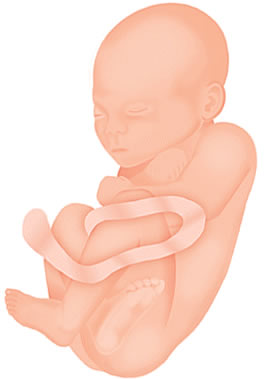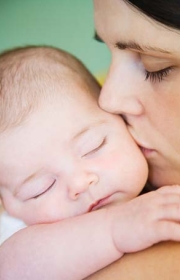Pruritic Urticarial Papules and Plaques of Pregnancy
 It’s not uncommon to feel itchy during your pregnancy – this will mostly be felt around your stomach and breasts and is usually caused by your changing hormones and your stretching skin
It’s not uncommon to feel itchy during your pregnancy – this will mostly be felt around your stomach and breasts and is usually caused by your changing hormones and your stretching skin
If you do suffer from common issues, such as dry skin, eczema or food allergies then these may be made worse over the course of your pregnancy
Some pregnant women may also experience more intense itchiness during pregnancy. This is often seem in conjunction with itchy, red bumps and larger patches of a hive-like rash on their bellies. This is known as pruritic urticarial papules and plaques of pregnancy or polymorphic eruption of pregnancy and will effect about 1% of pregnant women
It will usually effect women who are in their first pregnancy, carrying twins, and is usually at its worst during the third trimester
Appearance of PUPPP
It usually starts around the stretch marks on the stomach and breasts, as small red bumps and the will grow to form larger blotches of red bumps. Once the rash makes its appearance it usually spreads to the thighs, buttocks, breasts, and arms
What Causes It?
No one is certain of what may cause PUPPP, as it is not associated with other complications such as preeclampsia, hormonal abnormalities or fetal abnormalities
There are however some theories, and we stress that these are just theories:
Theory One: Some investigators suggest that the rapid abdominal wall distension damages connective tissue and causes an inflammatory response
Theory Two: One study has shown that male fetal DNA can be found in skin biopsies of the rash. Since 70% of women with PUPPP give birth to boys, a new hypothesis is that male fetal DNA acts as a skin irritant
How is it Treated?
In most cases treatment of the rash involves high strength steroid creams or ointments, applied 5 to 6 times a day to relieve the itching and prevent any further spread of the rash. Once the rash is under control, changing to a lower strength steroid used less frequently is advisable
In other cases oral steroids can be used to help control the itching.


